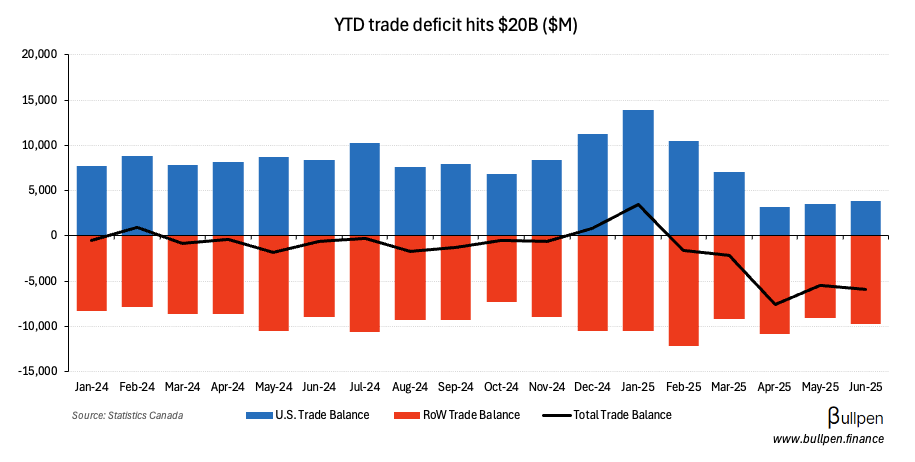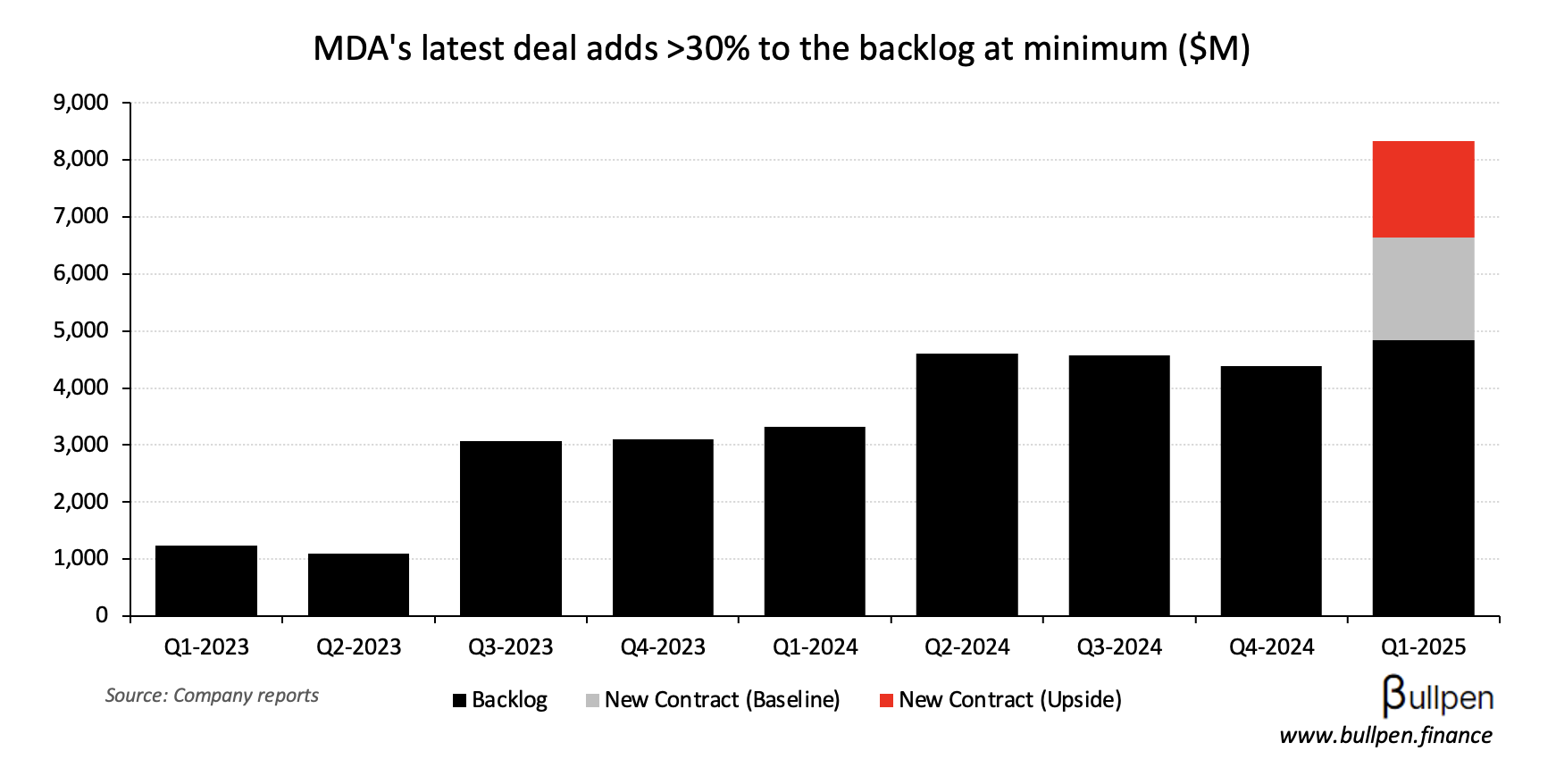With the space race going commercial, who stands to benefit?
Earlier in the week MDA Space (MDA) announced it had signed a ~$1.1B contract with Globalstar Inc. to build out its next-generation satellite constellation.
In recent years we’ve seen a flurry of activity in the burgeoning space industry, which underscores our motivation for writing this one: Space isn’t coming one day, it’s here now - and a number of Canadian companies stand to benefit.

Thanks to satellites, space is going commercial
The space industry used to be dominated by government initiatives but has since transitioned to a commercial game, with corporate space revenues nearing $450B in 2023, close to 80% of total activity.

Within commercial space activity, companies across the space satellite value chain are experiencing rapid growth, fueled by demand from industries like defense, communications, and earth observation.
The relationship between the weight of cargo onboard a rocket (ie. satellites) versus the total weight of the rocket at liftoff illustrates the impact of this commercial push.

A shift in satellite deployment strategy has occurred simultaneously, moving from a small number of large satellites further away from earth to a large number of small satellites closer to earth (in what is known as low earth orbit or LEO).

This shift has big implications for the commercial space industry at large.
These LEO satellite deployments have shorter lifespans than those further away from earth (2-4x less), which could result in more predictable recurring revenue business models to emerge over time.
Which Canadian companies are well-positioned?
As satellite deployments continue to pick up steam, Canadian companies operating across the entire value chain should benefit.

Some names that would benefit directly from the continued buildout of the space industry include:
MDA Space (MDA): the Canadian leader in space, with a footprint across industry verticals. Over 90% of MDA’s revenue comes from North America and its satellite systems segment is by far its fastest growing.

Telesat (TSAT): a Canada-based global satellite operator transitioning its fleet of satellites in geostationary orbit (GEO) to low earth orbit (LEO), with plans (and funding) to launch nearly 200 satellites into LEO in 2026 (manufactured by MDA).

The success of this transition will determine its fate, as its existing fleet loses market competitiveness.

Magellan Aerospace (MAL): a global manufacturer of components and systems for clients across the aerospace industry, including space. Through its space segment it offers small satellite bus platforms, avionics, components and assemblies, and services to a global customer base.
5N Plus (VNP): is a global leader in specialty semiconductors and performance materials that has been pushing aggressively into space following its acquisition of AZUR in 2021. The company manufactures high efficiency solar cells for both spacecraft and satellites, and has a multi-year backlog supported by space agencies (NASA, ESA) and commercial players (Sierra Space).

Get smarter on Canadian markets
Get our insight-packed coverage of Canadian markets delivered to your inbox 3x per week in 5 minutes or less.
Get smarter on Canadian markets
Get The Morning Meeting, our insight-packed Canadian markets newsletter delivered to your inbox 3x per week in 5 minutes or less.
Read by 1,000+ professionals from:

